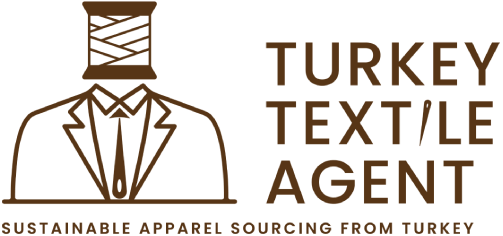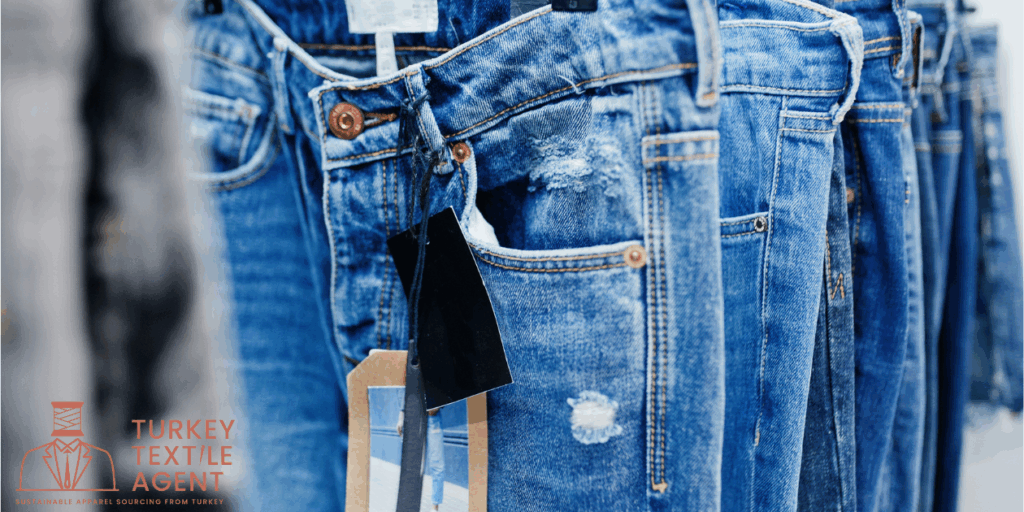In recent years, the demand for ethical clothing production has surged as consumers become increasingly conscious of their environmental and social footprints. Turkey, a prominent player in the global textile industry, has made significant strides in adopting sustainable and ethical practices in its clothing production. This article delves into the ethical clothing production in Turkey, examining the processes, challenges, and benefits of choosing ethical fashion in this region.
Understanding Ethical Clothing Production in Turkey
Ethical clothing production is defined by a commitment to environmental sustainability, fair labor practices, and animal welfare. In Turkey, the fashion industry has traditionally been a major economic driver, but it is now undergoing a transformation towards more eco-friendly practices. The shift is motivated by both consumer demand for more responsible products and the country’s rich history of craftsmanship and textile production.
Sustainability in the Turkish Fashion Industry
The Turkish textile sector has long been known for its high-quality fabrics, but in recent years, it has made significant moves toward sustainability. From organic cotton farming to eco-friendly dyes, Turkish producers are increasingly adopting methods that minimize harm to the environment.
Organic cotton, which is grown without the use of pesticides or synthetic fertilizers, is one of the primary materials used in ethical clothing production. Turkey is one of the world’s leading producers of organic cotton, ensuring that brands sourcing from the country are contributing to sustainable agricultural practices.
Fair Labor Practices in Turkish Factories
In addition to sustainability, ethical clothing production in Turkey places a strong emphasis on fair labor practices. Turkey has established regulations to ensure that workers in the textile industry receive fair wages and work in safe, healthy environments.
Many Turkish clothing factories are certified by organizations such as the Global Organic Textile Standard (GOTS) and Fair Trade, which ensure that the workers are treated with dignity and respect. These certifications also ensure that factory conditions meet strict environmental and safety standards, making Turkey an attractive option for brands looking to ensure their clothing is ethically produced.
Challenges in Ethical Clothing Production in Turkey
Despite the progress made, there are still challenges to overcome in ensuring that ethical clothing production remains a mainstream practice in Turkey.
Transparency Issues in the Supply Chain
One of the primary challenges in the ethical clothing production industry is the lack of transparency in the supply chain. While many companies claim to follow ethical practices, the traceability of materials and labor is not always clear. Turkey is making strides in this area, but it is still a work in progress. Brands and consumers alike must ask for more detailed information about the origin of the products they purchase to ensure they are truly supporting ethical businesses.
The Cost of Ethical Clothing
Ethical clothing, by its nature, tends to be more expensive than mass-produced garments. The use of organic materials, fair wages, and sustainable production methods often adds to the cost of production. However, as more brands in Turkey adopt these practices, the prices are expected to become more competitive. Consumers should be willing to pay a premium for ethically produced clothing, knowing that it is a better investment for the planet and society.
Why Choose Ethical Clothing from Turkey?
Turkey is an ideal destination for ethical clothing production for several reasons, combining its deep-rooted textile heritage with a growing commitment to sustainability and fairness.
Rich Textile Heritage and Craftsmanship
Turkey’s textile industry is rooted in centuries of craftsmanship, with skilled artisans producing beautiful fabrics and designs. This rich heritage ensures that ethical clothing from Turkey is not only environmentally friendly but also of the highest quality. Turkish artisans are renowned for their attention to detail, making ethically produced clothing from Turkey both sustainable and stylish.
A Growing Focus on Eco-Friendly Materials
As mentioned earlier, Turkey is one of the leading producers of organic cotton, a staple in ethical clothing production. Additionally, Turkish manufacturers are increasingly turning to other sustainable materials such as Tencel, hemp, and recycled fabrics. These materials offer eco-friendly alternatives to traditional fabrics, ensuring that the production process has minimal environmental impact.
Commitment to Fair Labor and Safe Working Conditions
Ethical clothing production in Turkey places a high priority on ensuring that workers receive fair wages and work in safe conditions. Factories in Turkey are increasingly seeking certifications such as Fair Trade and SA8000, which ensure that their workers are treated ethically and work in environments that adhere to international standards of health and safety.
The Role of Certifications in Ethical Clothing Production
Certifications are vital in ensuring that ethical practices are upheld throughout the production process. In Turkey, several certifications play a crucial role in maintaining the integrity of ethical clothing production.
Global Organic Textile Standard (GOTS)
The GOTS certification is one of the most recognized standards for organic textiles worldwide. In Turkey, many manufacturers use this certification to demonstrate that their products are made with organic fibers and produced according to strict environmental and social criteria. GOTS-certified clothing guarantees that the product is free from harmful chemicals and has been produced in a way that minimizes environmental impact.
Fair Trade Certification
Fair Trade certification ensures that workers involved in the production of clothing are paid fair wages and work in safe conditions. Many Turkish factories that produce ethical clothing have embraced this certification, making Turkey a reliable source of ethically produced garments.
How to Identify Ethical Clothing from Turkey
For consumers and brands looking to make ethical clothing purchases from Turkey, several factors can help identify truly ethical clothing.
Check the Certifications
Always look for certifications such as GOTS, Fair Trade, and OEKO-TEX to ensure that the clothing is ethically produced. These certifications indicate that the materials used are sustainably sourced and that workers are treated fairly.
Research the Brand’s Transparency
Brands that are committed to ethical clothing production will be transparent about their supply chain. Look for brands that provide detailed information about their manufacturing processes and the origin of their materials.
Look for Sustainable Materials
Ethical clothing production in Turkey increasingly relies on sustainable materials like organic cotton, hemp, Tencel, and recycled fibers. Brands using these materials are more likely to adhere to ethical practices.
The Future of Ethical Clothing Production in Turkey
The future of ethical clothing production in Turkey looks promising, with an increasing number of manufacturers adopting sustainable and fair practices. As consumer demand for ethical fashion continues to rise, Turkey is well-positioned to be a global leader in eco-friendly fashion. The country’s deep-rooted textile heritage, combined with its growing commitment to sustainability, makes it an attractive destination for brands looking to make a positive impact on the world.
Technological Innovation in Sustainable Production
Innovation is driving the ethical clothing industry forward. Turkish textile manufacturers are increasingly embracing cutting-edge technologies that reduce waste, lower energy consumption, and increase efficiency in the production process. 3D knitting machines, digital printing, and waterless dyeing technologies are just a few examples of how technology is shaping the future of ethical clothing production in Turkey.
Increasing Consumer Awareness
As awareness about the environmental and social impacts of clothing production grows, consumers are increasingly seeking out brands that align with their values. In Turkey, this shift in consumer behavior is pushing more brands to embrace ethical practices, creating a ripple effect across the industry.
Conclusion: Ethical Clothing Production in Turkey – A Path Towards a Sustainable Future
Ethical clothing production in Turkey is a growing trend that combines the country’s rich textile heritage with modern sustainable practices. Turkey’s commitment to eco-friendly materials, fair labor practices, and innovative production techniques makes it an ideal destination for ethical fashion. By supporting ethical brands that produce in Turkey, consumers can make a positive impact on the environment and society. As the industry continues to evolve, Turkey is poised to become a global leader in sustainable fashion.



